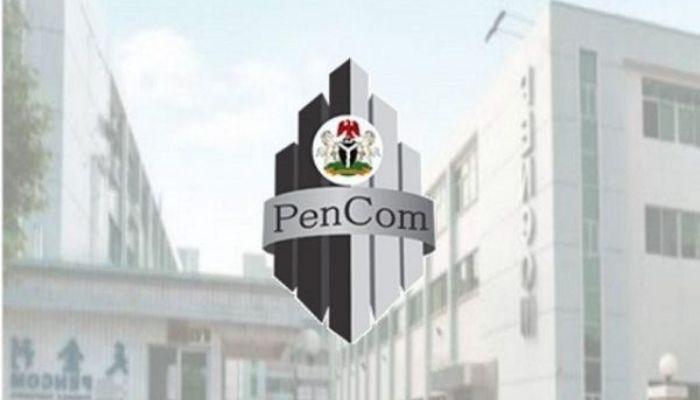The Director-General of the National Pension Commission (PenCom), Mrs. Aisha Dahir-Umar, has emphasized the importance of upholding ethics and integrity as the Nigerian pension and financial systems undergo rapid technological and regulatory disruptions. Speaking at a stakeholders’ forum in Abuja on Thursday, Dahir-Umar said that innovation without ethical direction could threaten the stability and credibility of the nation’s pension industry.
According to her, while technological advancement and policy reforms have brought efficiency, transparency, and wider coverage to the pension system, they also pose emerging risks that must be mitigated through strict adherence to ethical standards. “Disruptions are inevitable in any progressive system, but our response to them must be rooted in ethics, professionalism, and accountability,” she stated.

Dahir-Umar noted that PenCom’s primary objective remains the protection of pension assets and the assurance of retirement benefits for contributors, which can only be achieved if operators maintain the highest standards of conduct. “We must remember that the pension system is built on trust — the trust of millions of Nigerians who depend on us for their future security,” she added.
The PenCom boss said the commission has continued to strengthen its regulatory oversight to ensure that Pension Fund Administrators (PFAs) and Custodians comply with global best practices. She highlighted the recent review of investment regulations and the introduction of risk-based supervision as part of efforts to ensure prudent fund management.
She further explained that the commission’s ethical framework aligns with the Federal Government’s commitment to good governance and transparency across public institutions. “Our mandate is not just to regulate but to ensure that operators act responsibly and that contributors’ funds are protected from mismanagement and unethical practices,” she said.
Speaking on the role of technology, Dahir-Umar commended the increasing digital transformation in the pension sector, noting that data automation, electronic record management, and digital identity verification have significantly improved service delivery. However, she warned that innovation should not come at the expense of security or ethical responsibility.
“While we embrace technological solutions, we must also guard against cyber risks, data breaches, and manipulation of digital platforms. The ethical use of technology is just as important as the innovation itself,” she said.
The PenCom DG also urged pension operators and stakeholders to engage in continuous professional development to stay ahead of global trends and evolving regulatory expectations. She said the commission would continue to collaborate with local and international partners to build capacity and promote ethics-driven leadership within the industry.
In his remarks, the Chairman of the Ethics and Professional Standards Committee of the Chartered Institute of Personnel Management (CIPM), Dr. Abayomi Olabode, praised PenCom’s efforts to institutionalize ethics in its operations. He said the pension industry must remain a model for integrity and compliance in Nigeria’s financial system.
“Ethical governance must remain the backbone of every sector, especially one that handles the retirement funds of workers. What PenCom is doing serves as an example for other regulatory bodies,” Olabode said.
Also speaking at the event, the President of the Nigerian Employers’ Consultative Association (NECA), Mr. Adewale-Smatt Oyerinde, called for collective responsibility among employers and PFAs in ensuring compliance with pension laws. He urged companies to see pension remittance not as a burden but as a moral and social obligation to employees.
He said, “Ethics go beyond regulation. Employers must understand that ensuring their workers’ future security is a duty that reflects their integrity and values.”
Dahir-Umar also pointed to the commission’s ongoing reforms to expand pension coverage through the Micro Pension Plan (MPP), designed to include informal sector workers such as artisans, traders, and small business owners. She said the success of the initiative would depend largely on trust and ethical compliance among participants.
She added that the commission has intensified public awareness campaigns and collaborations with trade associations to deepen understanding of the pension system and ensure that informal workers see long-term value in contributing to their retirement savings.
The PenCom DG reiterated that the commission remains steadfast in implementing reforms under the Contributory Pension Scheme (CPS), which has proven to be a sustainable model for retirement security since its inception in 2004. She noted that Nigeria’s pension assets have grown to over ₦20 trillion, reflecting increased confidence in the system and the impact of ethical regulation.
“Ethics are not negotiable in a system that handles people’s life savings,” Dahir-Umar stressed. “We must continue to build a culture of transparency, accountability, and fairness that guarantees the integrity of the entire pension structure.”
Industry analysts have welcomed PenCom’s renewed call for ethics, saying it comes at a critical time when the financial landscape is witnessing disruptions from fintech innovations, blockchain solutions, and changing regulatory dynamics.
According to them, maintaining public trust will require regulators and operators to balance innovation with strong governance principles. They also emphasized that ethical compliance should be incorporated into every stage of digital transformation in the pension and finance sectors.
As Nigeria continues to adapt to global financial trends, experts agree that the success of ongoing reforms will depend on the ability of institutions like PenCom to enforce ethical discipline, foster innovation, and build systems that serve both present and future generations.
For Dahir-Umar and her team, the message is clear — the sustainability of the pension system and the stability of Nigeria’s financial future lie not just in technology or policy, but in ethics, integrity, and an unwavering commitment to doing what is right.
Support InfoStride News' Credible Journalism: Only credible journalism can guarantee a fair, accountable and transparent society, including democracy and government. It involves a lot of efforts and money. We need your support. Click here to Donate
